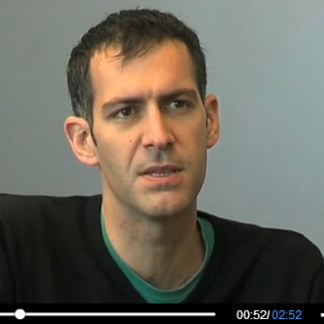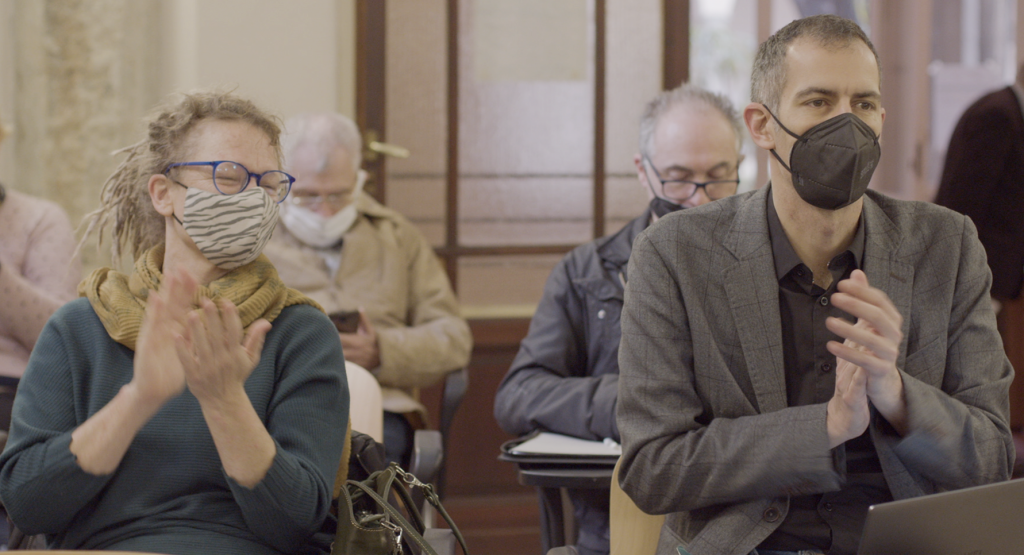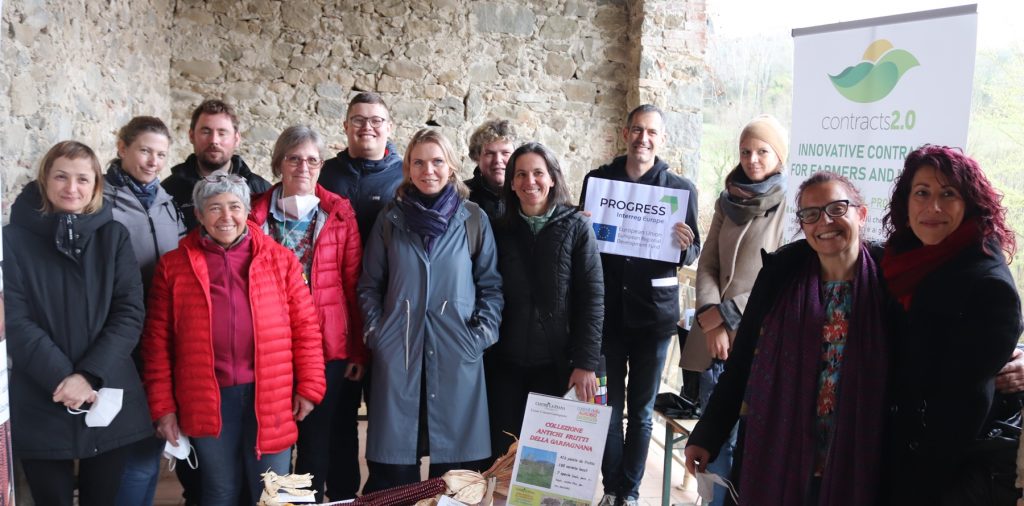Dialogues on landscape governance, following following the 4th Interreg Europe PROGRESS Workshop
The governance of sustainable landscapes has been the focus of the last and 4th Interregional Training Workshop of the Interreg Europe PROGRESS, hed in Florence (Toscana, Italy) at the end of March 2022. The event has been dual, with over 100 in-person and remote participants and speakers. The different experiences presented at this workshop are now being compiled as good practices and in the final handbook to be published soon. The different experiences presented in this 4th PROGRESS Interregional Training Workshop will be compiled as good practices and in the latest manual, which will be published shortly.
The central question asked to the 7 speakers and the 3 presenters was: How to achieve landscapes in balance with their ecosystem services? The main conclusion of the organization of the event is that it has served to place essential concepts on the international agenda. "Ecosystemic services are finally in the mouths of people with political responsibility, management and even company managers, something to which the Interreg PROGRESS project has contributed by making its small but key contribution," says Enrique Doblas, coordinator of PROGRESS and CREAF researcher.

"Ecosystem services are in the mouths of people with political responsibility, management and even company managers, something to which the Interreg PROGRESS project has contributed by making its small but key contribution"
ENRIQUE DOBLAS, PROGRESS coordinator and researcher at the CREAF.
The workshop has served to share the analysis and proposal of agreements and actions around the landscape and the ecosystem services they provide. It has been structured on the basis of interventions, round tables and sharing of success stories and good practices, by all the partner entities. In the words of Enrique Doblas, “the intervention of the Green Office of Budapest (Hungary) and the different examples of public water management presented by the CREAF researcher Annelies Broekman have generated a large number of comments. It is a pleasure to answer questions live from a dedicated audience interested in the good practices presented”.
The political debate that favors PROGRESS has been made evident in the turn of Marina Lauri (ANCI Tuscany), who has stated that the next Italian law on mountain areas contemplates the concept of ecosystem services. The new video of MyFarm Harta (Romania) has exposed the good results of a network of sustainable family farms that favors direct contact between the final consumer and farmers. It is a case of positive impact of proximity agriculture supported by the community.
Acting for landscape sustainability
The All Ireland Pollinator Plan project to reverse the decline of pollinating insects has been presented by Enrique Doblas who, in turn, has shared two examples: the Irish Blue Green City project (presented by Bryan Riney, Southern Regional Assembly) and the Hungarian The Green Office Hungary (presented by Attila Varga, Municipality of Hegyvidék, Budapest).
The speakers have shared their approaches to comprehensive action on solutions based on nature in cities. The Small Green Spaces Management Program in Hungary is an example of urban governance of ecosystem services, worth exploring further.

Reaching agreements about the landscapes
The video Forests for Water in Catalonia has illustrated the reality between forests and the water cycle and how sustainable management provides a healthy balance. The audiovisual has shown the process of agreement between a wide range of actors on basins and reservoirs, oriented towards payment for ecosystem services.
The debate on agreements to achieve more sustainable landscapes was moderated by Anabel Sánchez, CREAF Impact Officer. Firstly, the Italian local food system of Communities for Food and Agrobiodiversity (Massimo Rovai, Università di Pisa, Italy), promoted by policies such as public-social agreements between public authorities, non-profit organizations and local consumers, was discussed. And secondly, Annelies Broekman, CREAF researcher, presented various experiences of governance for adaptation around rivers and coastal climate risks, with several documents and methodologies available online, such as the BeWater project project manual.
This block has generated a lively debate between the speakers and the public about the challenge of preserving the ecosystems functioning in the context of transformative change, and the lack of linearity of the processes that occur at the local level. At this point, the importance of shared dialogue between scientific knowledge and interested parties has become evident.

Analysing landscapes with transparency
The efficient generation of forest data useful for policy decision making has been shown by the methodology from Hungary that uses aerial technologies to generate forest data in an efficient way for decision making.
Another case of good practice shared was the use of remote sensing technologies for forest management. This is the case of the Red Faith project from Hungary, which aims to increase efficiency in generating forest management data for use in decision making.
Three tools for digital landscape analysis at different scales were also presented, moderated by Janis Zvirgzdins (Technical University of Riga, Latvia). 3D virtual visualization of forests at local scales to guide logging and land use decisions (Markus Korhonen, Forest 2.0, Finland); regional landscape management approaches for grassland landscapes (Anda Ruskule, VivaGrass, Baltic countries), as well as a national multi-scale geographic system with landscape data and information from all over Ireland have been shared.
The Irish methodology allows strategic environmental assessment and spatial planning to be open and accessible to all stakeholders, changing the classical paradigm of complex Geographic Information Systems limited to specialized teams. Evidence-based sensitivity maps, time and cost saving efficiencies, weighted results and the elimination of computer outputs allow the EMS to be considered "a driver of change to advance practice, fostering participatory, informed and transparent decisions", according to Ainhoa Gonzalez, University College Dublin (Ireland).
To be up to date and to know more about the workshop, follow #PROGRESSitw4 on Twitter.






